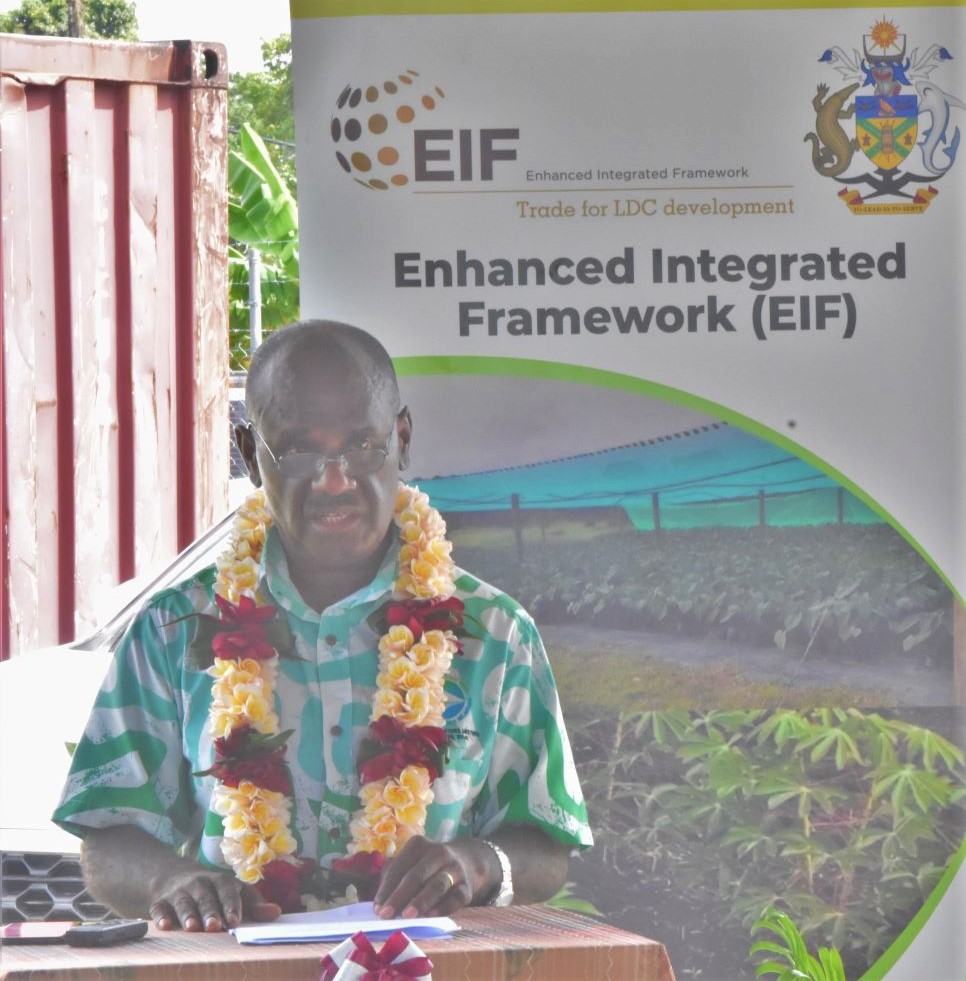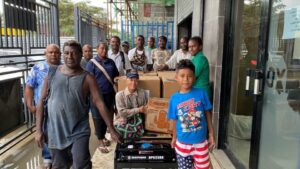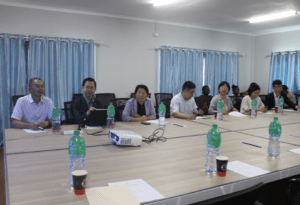BY JOHN HOUANIHAU
THE Ministry of Foreign Affairs and External Trade is working closely with other relevant ministries and stakeholders to support agricultural food safety and quality for export and domestic consumption.
Minister of Ministry of Foreign Affairs and External Trade, Hon. Jeremiah Manele has emphasized the importance of working together to implement the Enhanced Integrated Network (EIF) through the Enhancing Capacities for Agriculture Trade Project (ECAT) in the Solomon Islands.
He used his speech at the groundbreaking ceremony for a new office space worth $827,068.00 for the National Public Health Laboratory (NPHL) to make a supporting call about food safety; focusing on how the importance of enabling the Laboratory in its capacity to carry out proper testing and analysis of the targeted agricultural products under the ECAT Project.
“The quality and food safety aspect of agriproducts is the sole reason why we are gathered here and to witness the handing over of equipment’s and chemicals to ensure proper testing and analysis is undertaken to ascertain the quality and food safety of our products ideally for export but also domestic consumption,” the Minister told attendees attending the event at the Solomon Islands National University (SINU), Kukum Campus area.
The project aims to build a new office space that is fully funded by the Enhanced Integrated Framework and Agriculture Project or (ECAT) project. This will enable NPHL in its capacity to carry out proper testing and analysis of the targeted agriculture products under the ECAT project.
This year, on 21 March, the EIF has handed over SBD 140,000 worth of lab equipment and chemicals for the laboratory that indicates the ongoing commitments and support from EIF to ensure the laboratory has enough resources and proper tests.
The project is a partnership between the Ministry of Foreign Affairs and External Trade (MFAET) and the Ministry of Health and Medical Services (MHMS).
According to the Foreign Affairs Minister, the office will enable National Public Health Laboratory (NPHL) in its capacity to carry out proper testing and analysis of the targeted agricultural products under the ECAT Project. This is an important requirement to be able to export and ensuring general food safety for domestic consumption.
“We are aware that the NPHL staff have been using the lab as an office space for the past couple of years and this has affected the country’s broader objective of International Organization for Standardization (ISO) certification and accreditation mainly on the micro-biology area,” Minister Manele said.
The Enhancing Capacities for Agriculture Trade Project is a multi-donor programme that supports Least Developed Countries (LDCs) to be more active players in the global trading system to tackle supply-side constraints to trade.
The Foreign Affairs Minister said that Solomon Islands as an LDC has benefited from three EIF projects namely capacity building project, tourism projects – the one which supports the development of the handy crafts centre and the agriculture project current under implementation.
“The ECAT project aims to boost exports of key agricultural commodities namely taro and cassava by establishing proper policy, enabling environment to increase investment and tab into the existing value chain, and boosting capacities of local testing facilities to ensure compliance in the area of food safety,’’ said Manele.
He highlighted that one of the intended results of the ECAT project is to improve the capacity of the National Public Health Laboratory, the Ministry Of Agriculture Livestock Development, and the Ministry Of Commerce Industries Labour And Immigration for food safety and quality assurance.




